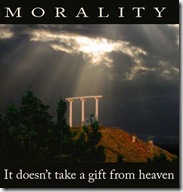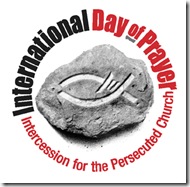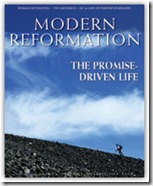 I love this Top Ten List of Piper’s–they are great reasons to be thankful!
I love this Top Ten List of Piper’s–they are great reasons to be thankful!
By John Piper November 20, 2006
1. The Bible awakens faith, the source of all obedience.
So faith comes from hearing, and hearing by the word of Christ. (Romans 10:17)
2. The Bible frees from sin.
You will know the truth, and the truth will make you free. (John 8:32)
3. The Bible frees from Satan.
The Lord’s bond-servant must not be quarrelsome, but be kind to all, able to teach, patient when wronged, with gentleness correcting those who are in opposition, if perhaps God may grant them repentance leading to the knowledge of the truth, and they may come to their senses and escape from the snare of the devil, having been held captive by him to do his will. (2 Timothy 2:24-26)
4. The Bible sanctifies.
Sanctify them in the truth; Your word is truth. (John 17:17)
5. The Bible frees from corruption and empowers godliness.
His divine power has granted to us everything pertaining to life and godliness, through the true knowledge of Him who called us by His own glory and excellence. For by these He has granted to us His precious and magnificent promises, so that by them you may become partakers of the divine nature, having escaped the corruption that is in the world by lust. (2 Peter 1:3-4)
6. The Bible serves love.
And this I pray, that your love may abound still more and more in real knowledge and all discernment. (Philippians 1:9)
But the goal of our instruction is love from a pure heart and a good conscience and a sincere faith. (1 Timothy 1:5)
7. The Bible saves.
Pay close attention to yourself and to your teaching; persevere in these things, for as you do this you will ensure salvation both for yourself and for those who hear you. (1 Timothy 4:16)
Therefore, I testify to you this day that I am innocent of the blood of all men. For I did not shrink from declaring to you the whole purpose of God. (Acts 20:26)
[They will] perish, because they did not receive the love of the truth so as to be saved. (2 Thessalonians 2:10)
8. The Bible gives joy.
These things I have spoken to you, that my joy may be in you, and that your joy may be full. (John 15:11)
9. The Bible reveals the Lord.
And the Lord appeared again at Shiloh, for the Lord revealed himself to Samuel at Shiloh by the word of the Lord. (1 Samuel 3:21)
10. Therefore, the Bible is the foundation of my happy home and life and ministry and hope of eternity with God.
Desiring GodPermissions: You are permitted and encouraged to reproduce and distribute this material in any format provided that you do not alter the wording in any way and do not charge a fee beyond the cost of reproduction. For web posting, a link to this document on our website is preferred. Any exceptions to the above must be approved by Desiring God.Please include the following statement on any distributed copy: By John Piper. Desiring God. Website: desiringGod.org
 In the study of Acts, we are seeing the stresses and strains that grew out of preaching of the gospel to people whose roots were firmly planted in Judaism. This clarifying article , “Does our Ability to act Morally depend on Who we Worship?” by John Piper addresses what Paul was facing chapter after chapter of Acts.Â
In the study of Acts, we are seeing the stresses and strains that grew out of preaching of the gospel to people whose roots were firmly planted in Judaism. This clarifying article , “Does our Ability to act Morally depend on Who we Worship?” by John Piper addresses what Paul was facing chapter after chapter of Acts. 





